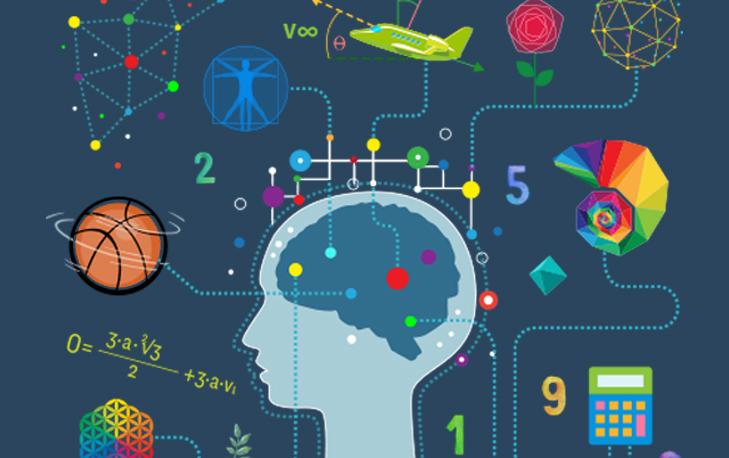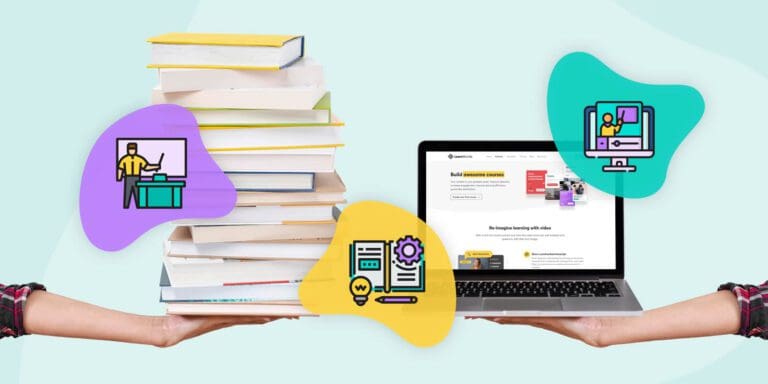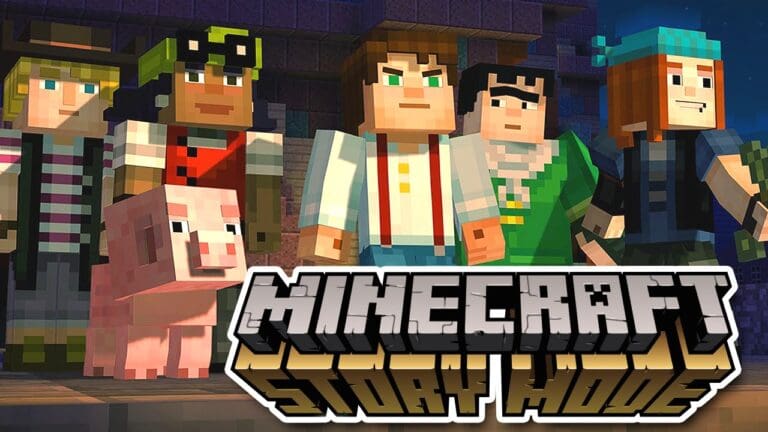Educational Games: Enhancing Learning Through Play
Are you looking for a fun and engaging way to help your child learn new skills? Educational games might be just what you need! These games are designed to teach children important concepts, from math and science to reading and writing, in a way that feels like play.
One of the biggest advantages of educational games is that they can help children stay motivated and engaged in their learning. Unlike traditional classroom activities, which can sometimes feel boring or repetitive, games are designed to be entertaining and interactive. This can make it easier for children to stay focused and interested and can help them retain information more effectively.
Another benefit of educational games is that they can be tailored to your child’s individual needs and learning style. Many games offer different levels of difficulty and customization options, allowing you to adjust the game to your child’s skill level and interests. This can help ensure that your child is challenged enough to learn new things but not so overwhelmed that they become frustrated or disengaged.
What are Educational Games?
Educational games are a type of game designed to teach you about a specific subject or skill. They are made for people of all ages but are predominantly used in classrooms for kids and students. Educational games are a subset of serious gaming, which means they are designed for a purpose beyond just entertainment.
The primary goal of educational games is to make learning more engaging and interactive. They are designed to be fun and entertaining while also teaching you something new. By incorporating learning into play, educational games make it easier for you to understand and retain information.
There are many types of educational games, including board games, card games, and video games. Some educational games are designed for specific subjects, such as math or science, while others are designed to teach more general skills, such as problem-solving or critical thinking.
Here are some benefits of educational games:
- They make learning more fun and engaging.
- They help you retain information better by incorporating it into a game.
- They can improve problem-solving and critical thinking skills.
- They can be used in classrooms to supplement traditional teaching methods.
- They can be used at home to reinforce learning outside of the classroom.
In conclusion, educational games are a valuable tool for learning and can be used to supplement traditional teaching methods. They make learning fun and engaging and help you retain information better. Whether you’re a student or a lifelong learner, educational games can greatly improve your skills and knowledge.
Benefits of Educational Games
Educational games might be the answer if you’re looking for a way to make learning more engaging and fun. Here are some benefits of using educational games in your learning process:
1. Increased Engagement
Educational games are designed to be interactive and engaging, which can help keep you focused and motivated. When you’re having fun while learning, you’re more likely to stay engaged and retain the information you’re learning.
2. Improved Learning Outcomes
Studies have shown that educational games can improve learning outcomes. For example, one study found that students who played an educational game designed to enhance their executive function skills improved their focus-shifting abilities compared to students who played a word search game. Educational games can also help improve critical thinking, problem-solving, and decision-making skills.
3. Personalized Learning Experience
Educational games can be customized to meet your individual learning needs. For example, you can choose games that focus on specific subjects or skills that you need to improve. Additionally, educational games can adapt to your learning style, providing you with a personalized learning experience.
4. Increased Motivation
Educational games can be a great way to motivate you to learn. You’re more likely to want to continue learning and exploring new topics when you’re having fun while learning. Additionally, educational games can provide you with immediate feedback, which can help you stay motivated and engaged.
5. Safe Learning Environment
Educational games provide a safe learning environment where you can make mistakes without fear of judgment. You can learn at your own pace and take the time to understand concepts without feeling rushed or pressured.
Overall, educational games can be a great way to make learning more engaging, fun, and effective. Whether you’re a student looking to improve your grades or an adult looking to learn new skills, educational games can provide a personalized learning experience to help you achieve your goals.
Types of Educational Games
There are various types of educational games that can help children learn and have fun at the same time. Here are some of the most popular types of educational games:
Math Games
Math games can help children develop their math skills, including counting, addition, subtraction, multiplication, and division. These games can be designed for different ages, from preschoolers to middle schoolers. Some popular math games include Prodigy Math and Math Playground.
Language Games
Language games can help children develop their language skills, including letter recognition, spelling, and grammar. These games can be designed for different ages, from preschoolers to high schoolers. Some popular language games include Hangman and Scrabble.
Science Games
Science games can help children develop their understanding of science concepts, including biology, chemistry, and physics. These games can be designed for different ages, from preschoolers to high schoolers. Some popular science games include The Magic School Bus and BrainPOP.
History and Geography Games
History and geography games can help children develop their knowledge of history and geography concepts, including world cultures, maps, and landmarks. These games can be designed for different ages, from preschoolers to high schoolers. Some popular history and geography games include Where in the World is Carmen Sandiego? and Oregon Trail.
Overall, educational games can be a great way to supplement traditional learning methods and make learning more engaging and fun for children. Whether your child needs help with math, language, science, or history and geography, there is likely an educational game out there that can help them learn and have fun at the same time.
Popular Educational Games
Educational games are a great option if you are looking for fun and engaging ways to help your child learn. Here are some of the most popular educational games available:
Prodigy
Prodigy is a popular math game for kids in grades 1-8. It’s designed to help kids learn math skills in a fun and engaging way. The game is free to play and features over 1,500 math skills aligned to the Common Core Standards. Kids can play alone or with friends, and the game adapts to their skill level.
Typing.com
Typing.com is a popular typing game that helps kids learn to type. The game features a variety of typing exercises and games that are designed to help kids improve their typing speed and accuracy. The game is free to play and is suitable for kids of all ages.
Minecraft: Education Edition
Minecraft: Education Edition is a popular game that is used in classrooms around the world. The game is designed to help kids learn a variety of subjects, including math, science, and history. Kids can explore virtual worlds, build structures, and work together with other players to solve problems.
Kahoot!
Kahoot! is a popular game-based learning platform that teachers and students around the world use. The platform features a variety of games and quizzes that are designed to help students learn a variety of subjects, including math, science, and history. Kahoot! is free to use and is suitable for kids of all ages.
ABCmouse
ABCmouse is a popular educational game for kids ages 2-8. The game features a variety of interactive activities and games designed to help kids learn various subjects, including math, science, and reading. The game is subscription-based and offers a free trial.
These are just a few of the many popular educational games available. Whether you are looking for a math game, a typing game, or a game that covers a variety of subjects, there is sure to be an educational game that is perfect for your child.
New Educational Games
If you’re looking for some fresh and exciting educational games to help your child learn and have fun at the same time, you’re in luck! There are always new games being developed and released, and here are some of the latest ones that you might want to check out:
- Search It Up – Join the “Search It Up” kids to play games about selfies, emojis, the internet, and more! This game is great for developing digital literacy skills and learning about online safety.
- All Aboard with Alma! – Build your own subway system to drop off and pick up passengers! This game is perfect for kids who love puzzles and problem-solving as they figure out the best routes to take and how to avoid obstacles.
- Halloween Party – Help Alma’s guests as they play games, eat, and dance in spooky costumes! This game is a fun way to learn about Halloween traditions and practice social skills like cooperation and sharing.
- Make Your Own Song Remixes – You can create your own song remixes with Alma, Eddie, and Junior and their Puerto Rican band! This game is perfect for kids who love music and want to learn about rhythm and melody.
These are just a few examples of the new educational games available. They cover a range of subjects and skills, from digital literacy to problem-solving to social skills to music. So whether your child is interested in technology, puzzles, Halloween, or music, there’s a game out there for them!
Remember, playing educational games can be a great way for your child to learn and have fun at the same time. It can help them develop critical thinking, creativity, and communication skills. So why not try out some of these new games and see what your child thinks? They might just discover a new favorite!

War Games and Educational Games
War games are a popular educational game genre that allows players to learn about historical battles and conflicts. These games can be a great way to engage students in learning history and military strategy.
One of the benefits of war games is that they can help students develop critical thinking and problem-solving skills. In these games, players must make strategic decisions based on the information available to them. This can help them learn how to analyze situations and make informed decisions.
Another benefit of war games is that they can help students develop empathy and understanding for people who have experienced war. By playing these games, students can better understand the challenges and sacrifices that soldiers and civilians face during times of conflict.
Many types of war games are available, ranging from board games to video games. Some popular war games include:
- Risk: A classic board game that simulates global warfare.
- Call of Duty: A first-person shooter game that allows players to experience historical battles.
- Valiant Hearts: A puzzle-adventure game set during World War I.
- This War of Mine: A survival game that puts players in the shoes of civilians trying to survive during a war.
When selecting war games for educational purposes, choosing games appropriate for your student’s age and maturity level is important. It is also important to choose historically accurate games that provide a balanced perspective on the conflicts they depict.
Overall, war games can be a valuable tool for educators looking to engage students in learning about history and military strategy. By providing a fun and interactive way to learn, these games can help students develop critical thinking skills and better understand the challenges and sacrifices of war.
Privacy Policy for Educational Games
As a user of educational games, it is important to understand the game’s privacy policy. The privacy policy outlines how the game collects, uses, and discloses your personal information. This includes information such as your name, email address, and any other information that can be used to identify you.
When you play educational games, the game may collect information about your gameplay. This information improves the game and provides you with a better experience. The game may also collect information about your device, such as your device type and operating system.
It is important to note that educational games that are designed for children under the age of 13 must comply with the Children’s Online Privacy Protection Act (COPPA). This means the game must obtain parental consent before collecting personal information from a child.
The privacy policy should also outline how the game protects your personal information. This includes measures such as encryption, firewalls, and secure servers. The game should also outline how they will notify you in the event of a data breach.
In addition to protecting your personal information, the privacy policy should also outline your rights as a user. This includes your right to access, correct, and delete your personal information. The policy should also outline how to contact the game if you have any questions or concerns about your personal information.
Overall, the privacy policy is an important aspect of educational games. It outlines how your personal information is collected, used, and protected. As a user, it is important to read and understand the privacy policy before playing the game. This will help ensure that your personal information is protected and that you have a positive gaming experience.
FAQ
If you’re looking for fun but educational games, there are many options available for students of all ages. Educational games can help students learn new skills, reinforce concepts they’ve already learned, and keep them engaged and motivated. Here are some frequently asked questions about educational games:
What are some fun but educational games?
There are many fun educational games available for students of all ages. Some popular options include:
- ABCya!: This website offers a variety of educational games for students in grades PreK through 6. Topics include math, reading, typing, and logic games.
- ThinkFun: This company offers a variety of educational games for students of all ages. Their games are designed to reinforce concepts in STEM fields and 21st-century thinking skills.
- Osmo: This company offers a variety of educational games that promote embodied learning through physical-digital interactions.
What is educational games for students?
Educational games are games that are designed to teach students new skills or reinforce concepts they’ve already learned. These games can be used in the classroom or at home to help students learn in a fun and engaging way. Educational games can cover a wide range of subjects, including math, science, reading, and more.
What is the 1 2 3 game for kids?
The 1 2 3 game is a fun and educational game for kids that helps them learn numbers and counting. The game involves counting objects and matching them to the correct number. This game can be played with a variety of objects, such as blocks, toys, or even food.
Are games educational for kids?
Yes, games can be educational for kids. Educational games can help students learn new skills, reinforce concepts they’ve already learned, and keep them engaged and motivated. Games can also be fun for students to learn and explore new topics. However, choosing age-appropriate games aligned with the student’s learning goals is important.







